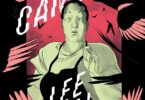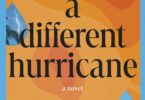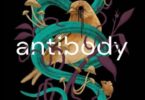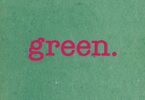Reviewed by Namitha Rathinappillai
Tawahum Bige, Stages of Tanning Words and Remembering Spells: Part 1: Scraping Lungs Like Hides (Nightwood Editions, 2025), 96 pp., $19,95.
jaye simpson, a body more tolerable (Arsenal Pulp Press, 2025), 88 pp., $19.95.
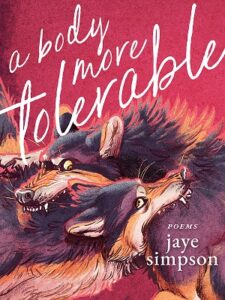 In two recently published collections, Two-Spirit poets jaye simpson and Tawahum Bige write with heartfelt wisdom about Indigiqueerness, kinship, rage, and what it means to choose oneself as self-preservation.
In two recently published collections, Two-Spirit poets jaye simpson and Tawahum Bige write with heartfelt wisdom about Indigiqueerness, kinship, rage, and what it means to choose oneself as self-preservation.
jaye simpson’s sophomore poetry collection, a body more tolerable, is a visceral inquiry into what womanhood with claw marks looks like. The poems read as welcomings, warnings, urban legends, and soft landings. The book’s cover art, done by Two-Spirit artist Valen Onstine, depicts two wolves, observing the other as their own canines are sunken into the other’s body: this ouroboros-like imagery elicits a pondering for what lies within these poems. Or perhaps these animals are akin to gargoyles, fiercely protecting the poems that inhabit the pages of this collection. (Previously, Simpson and Onstine collaborated on the Indigiqueer YA graphic novel Crow Girl.)
The book’s epigraph reads, “to the ones who know of this kind of relentless hunger”: the many ways we see this hunger unfold in the poems to come makes this poignant epigraph one to come back to.
simpson has poems that appear as micro-altars to particularly influential women in their life. In the chapter titled “womb // less,” poems such as “nimama” speak about the author’s own relationship to their mother, while simultaneously speaking about their own womblessness and not wanting to be a parent.
In “Jules,” simpson speaks about all the places that they see her, and names Vancouver locations such as Commercial Drive and Hastings to add immortalizing local texture to this already intimate offering. As simpson speaks to a family member about all the places they see Jules, the family member responds, “in the mirror too I hope.” For all the rage that this book holds, it holds equal parts tenderness, as seen in these gentle invitations for distinct and generous intimacy.
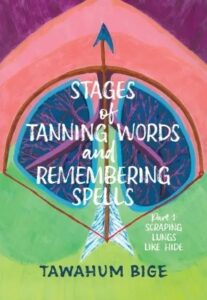 We can also see this sharing of self, and the infinite allowance of kindness that a loved one can give us about ourselves in the poems in Tawahum Bige’s second collection, Stages of Tanning Words and Remembering Spells.
We can also see this sharing of self, and the infinite allowance of kindness that a loved one can give us about ourselves in the poems in Tawahum Bige’s second collection, Stages of Tanning Words and Remembering Spells.
It is the first of a series (note the full title of the collection: Stages of Tanning Words and Remembering Spells: Part One: Scraping Lungs like Hide), introducing us to Bige’s exploration of boyhood, mixed heritage, and poetic introspection amidst hardship. The chapters in this collection are titled “Cry,” “Whimper,” “Holler,” “Laugh,” and “Whisper,” with each chapter opening with the word’s definition and a poetic example of each word as a verb in a sentence. The choice of each chapter to be an action, be it a response or a resistance, provides us insight into the ways the author sees a deep humanity in these seemingly habitual gestures.
In Bige’s poem “Stress Headaches and White Flashes,” we see these moments of loved ones giving the author a more intimate look into oneself. Bige ends the poem with the lines:
………..[…] a friend who says he thinks it’s shitty
that I have to be so quiet in my own bedroom
so I don’t wake my dad,
………I get up one day,
………quit the bottle for a second (six months),
……………….save up, and move the fuck out.
It is invaluable the ways in which the stepping in of an outside voice can disrupt the ways in which we normalize our home lives.
In “Boy,” Bige writes:
……………………………………………..[…] I think the land might forget
but I’m the new memory, here. I see my first coyote ever and don’t
approach. Just witness baring fangs and pawed pavement
from twenty metres back. The sun threatens to rise;
the coyote returns to the bush. […]
There is a solemn stoicism to these lines: a profound respect for oneself and the natural world they exist in. With descriptive language, it is easy to feel as though we are alongside Bige, uncovering new truths side by side. Similarly, in “(Un)lock[er]”, the final lines read:
The single wooden staff posted in a cemetery of crosses on Deh’cho land—I
just visited is Setsi’s filled grave. I return to a blank, grey rain-filled night
beside this locker. In a place so full of empty, I see what fulfills it. I smell
sweet water on cement. Witness a flood closing in.
The vivacity of Bige’s writing, particularly as it intertwines with the earth around them, is deeply moving to read.
Both Bige and simpson write with unequivocal conviction about the intimacy of gender. In their work, we see the range of what it means to be Two Spirit through the vastness of how either writer speaks about their gender, disrupting any singular narrative of what it means to hold this identity.
The title poem of simpson’s appears as the final one in the book. Earlier, we come across a poem titled “a body less tolerable”: a seeming contrast to the collection title, presenting itself much like a reversed tarot card. However, it is the waiting for this final poem that I most joyously read for its arc. Halfway through it, we receive the title line in the title poem:
……………………..[…]shattered the assumption of boy
………….the blunt b, the hollow o, and the blade of y
to become the conduit of myself […]
……………………..this: a body more tolerable.
Those who have read simpson’s debut collection, it was never going to be okay, or had the immense privilege of hearing them perform, might recognize that line: “the blunt b, the hollow o, and the blade of y”; it also appears in that earlier book, in the poem “boy.” simpson transcends this foundation in the deliverance of the final lines of this poem, which also conclude the book as a whole. They read:
became the pomegranate
……………………….rather than the outstretched hand
……………………….a body worthy of her divinity.
How we move away from perceptions of one’s body to embodiment, from tolerability to divinity.
Both simpson and Bige write with heartfelt wisdom about Indigiqueerness, kinship, rage, and what it means to choose oneself as self-preservation. It is a gift to read these collections, and I am greatly looking forward to both authors’ future works.
Namitha Rathinappillai (she/they) is a genderqueer Tamil poet, organizer, and workshop facilitator. She is currently based in Toronto with their two cats, Halloumi and Paneer.


